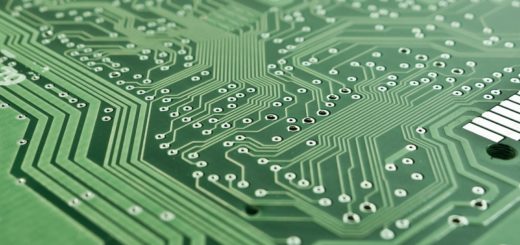Tips and Tools to have a less Stressful PhD
In this article, I am trying to share with you my own experience throughout my PhD time in Hamburg. The current article is not more than a personal experience where I am trying to share some tips and tools to help dealing with tasks and manage stress, how to make the journey easier, how to manage your data and track them, tips regarding writing and software to support that, and at the end online platforms that could help you to improve your work.

Weekly Tasks 📑
A PhD is full of tasks and without managing your tasks list, you will be stressed and less productive. You have to start your week with a pre-planned task list, others recommend to tak on not more than 3 tasks per week, and my personal take is to be realistic and respect your human nature. You are not a machine, and there is no rule for how many tasks you can do per week. It mainly depends on the nature of the task itself, if you are able to manage more and with the same quality, go ahead. This is now your first task, to know yourself and your ability.
Once you have decided how many tasks you need to do, write them down. You can use a pen and a paper or if you’d like to be more digitalized, you can use different software that could help in that. Google Calendar, Trello, and Notion are apps that could be used to manage and track your tasks. Throughout this article I will mention Notion more than once, if this is the first time to hear about it, I highly recommend learning more about it.
Start your week with the Tough Task
Weekly Reports 📅
Since I joined my group in Hamburg, our supervisor asked us to send a weekly report about our progress in the lab and what has been achieved so far. Maybe we are not the only lab, which is working with such a routine, you can check this article to see how weekly reports will add value to your progress. You may think a week is too short to have something to present, if so you might do it bi-weekly.
If you read this article, you might find that a weekly report has a significant role in keeping track of your project. Furthermore, it might organize your thoughts and help you from overwhelming yourself by interpreting all your big data at the end.
The small achievements you got, which you analyze carefully, will help you in your next steps. The other thing is knowing how to present your data, and to have them almost ready, to save time at the writing stage of your manuscript or your thesis. We will come in the next section to talk more about writing the dissertation.
Track your weekly report, do your tracking system to know what you did, when you did it, and in which week report the raw data should be. Think about your tracking system before you start to initialize it. Ask yourself, what is the main information I may need; maybe date, sample code, short output, category, ..etc.
Track your weekly reports
Then, you can start to build your tracking system, you can do that using Excel sheets, or you can also use Notion.
The powerful part of Notion that its ability to have nested hybrid spreadsheets. So, you can have a table of the year, within it another one for the weeks, and within each week, you can have more information about that week.
Such data could be numbers, images, text, or any type of data you have. Here, is the powerful part of it.
Regarding the data itself, If you have already been convinced with the weekly report, then you should have a folder for each week, and within this folder, your raw data. Normally, you use another software to plot your results, in our field Origin is commonly used. You may have another one, but in the end, there is a software you are going to use to plot your result in the final form. My own advice here, try your best to have fewer files of the final or semi-final form. If you can have it all in one file, this will be easier, if your file will not crash with time. In case your work could be categorized then you can have per each category a separate file.
Writing Phase ✍
Writing the dissertation starts on the first day of your PhD. How to make your writing phase easier?
Throughout your research, your ideas and perspective about the research point and the whole field are improving and getting more deeper. This should be reflected in your dissertation or your paper. Therefore, personally, I am not recommending to start actually writing from your first day, but you start to collect your ideas, and knowledge and organize them in one place. The easiest way to do that is by using a reference manager. Commonly, people use Mendeley, Endnote, or even Zotero as free software.
The main benefit of all of these tools is to gather for you the library, but to my knowledge, none of them gather for you the ideas in one place. Therefore, I have used Citavi, as my reference manager, to do both, to manage the library, and, most importantly, to have my ideas and the highlighted sections from the literature organized in one place. I can reach them with one click and even search easily using keywords to find what I am looking for.
Citavi collects your ideas in One Place
If this is your first time hearing about Citavi, then check their website to know more. If you are already using it, but are not using the knowledge tab, keep reading to know how powerful and time-saving it is to work with it.
Knowledge Tab in Citavi
Like any other reference manager app, you can organize your library into folders, and use tags or categories. However, one of the great advantages of Citavi is the knowledge tab, where you can make your own skeleton, which is your own way of thinking or planning regarding your project. Think about it as your dissertation skeleton, or your manuscript skeleton, where you have an introduction, methods, and discussion. Under each section, you can add a sub-section and so on.
In each of these knowledge items, let’s call it, you will have the highlighted section from different literature gathered there. You will normally keep it a routine to read your article via Citavi, highlight the section you like or will need, and select the knowledge item that belongs to this part. You can select more than one, there is no limit.
While you are doing that and throughout your PhD, and even if you are now at the end of your PhD and going to start writing, you still can use such a strategy to help you to have everything in one place. No more navigating between pdf files.
Once, you have your own knowledge items in one place, and you are ready now to write, what you need is to simply go through these items per each section to refresh your memory and organize your thought. You start writing, and all of that is connected with Microsoft Word, with one click you will insert the citation you need. Instead of looking for this info in each pdf file or searching for it in your reference manager. With one click you reach it and it really helps to avoid citation mistakes.
Such a strategy, will help you to save your writing time, and be more productive. One more tip, in Citavi you can have a cloud project, where you can access your library from any place, and its license is covered by the University of Hamburg.
Online Tools 💻
I would like to present three other nice online tools for researchers: Research rabbit, Researcher App, and Connected papers.
Besides the reference manager, there are other tools that help you to find interesting literature. Let us start with Research rabbit if you plan to write a literature review on a specific topic or you need to know more regarding the network and the impact of this topic. Research rabbit is where to go, easily import a few research papers and the platform will guide you with similar and other related articles. This is simply will help in finding the targeted articles and build your first overview regarding the topic, you can also easily categorize that based on authors or different tags.
What if you need to track a specific topic and to be daily updated with the new articles, Google alert has been used to do this job, but I personally highly recommend ResearcherApp. You can have it on your smartphone or the web version and both are connected to your account. Easily, you can add specific keywords and the software will collect for you any articles related and keep you updated, not only that but you can also follow a specific author in your area to keep yourself updated with his/her output. Moreover, you can follow specific journals, so there is no need to visit their website. Lastly, the functions of Connected papers, can be quite easily guessed from its name.
I have tried to share with you my personal experience and am looking forward to your input and comments, and in case you have more tools that could help, feel free to share them with us down below in the comments section. Thanks for your time and I wish you a relaxed and pleasant PhD.


















Sehr gut, informativ und hilfreich Artikel
Vielen Dank
Danke Mohammed
very detailed, great job saad
Thanks Ahmed, I hope it was helpful
Very insightful! I’m writing my weekly snippets right now 🙂
Great, keep it up Safty. I wish you all the best with your weekly reports.
Nice one! Thanks for sharing your experience
Thanks Basim, my pleasure
Nice tips. Thanks for sharing.
Thanks, Dorgham, I hope it was helpful..
Nice post Saad, thanks for the insights!
Thanks, Marvin
Interesting piece. Undoubtedly helpful for me in my early PhD career. Thanks a lot for sharing
Thanks, Ben, I wish you all the best in your PhD.